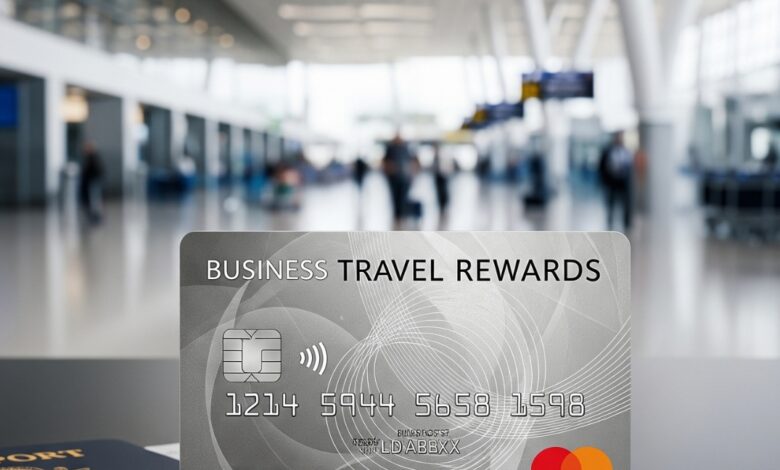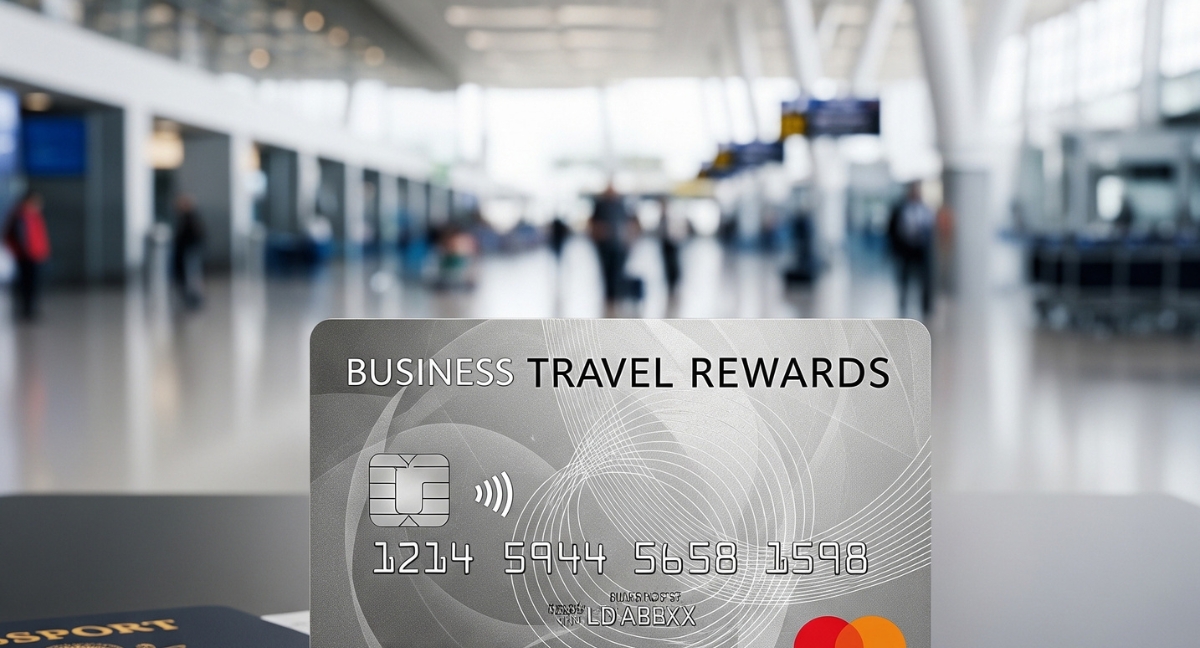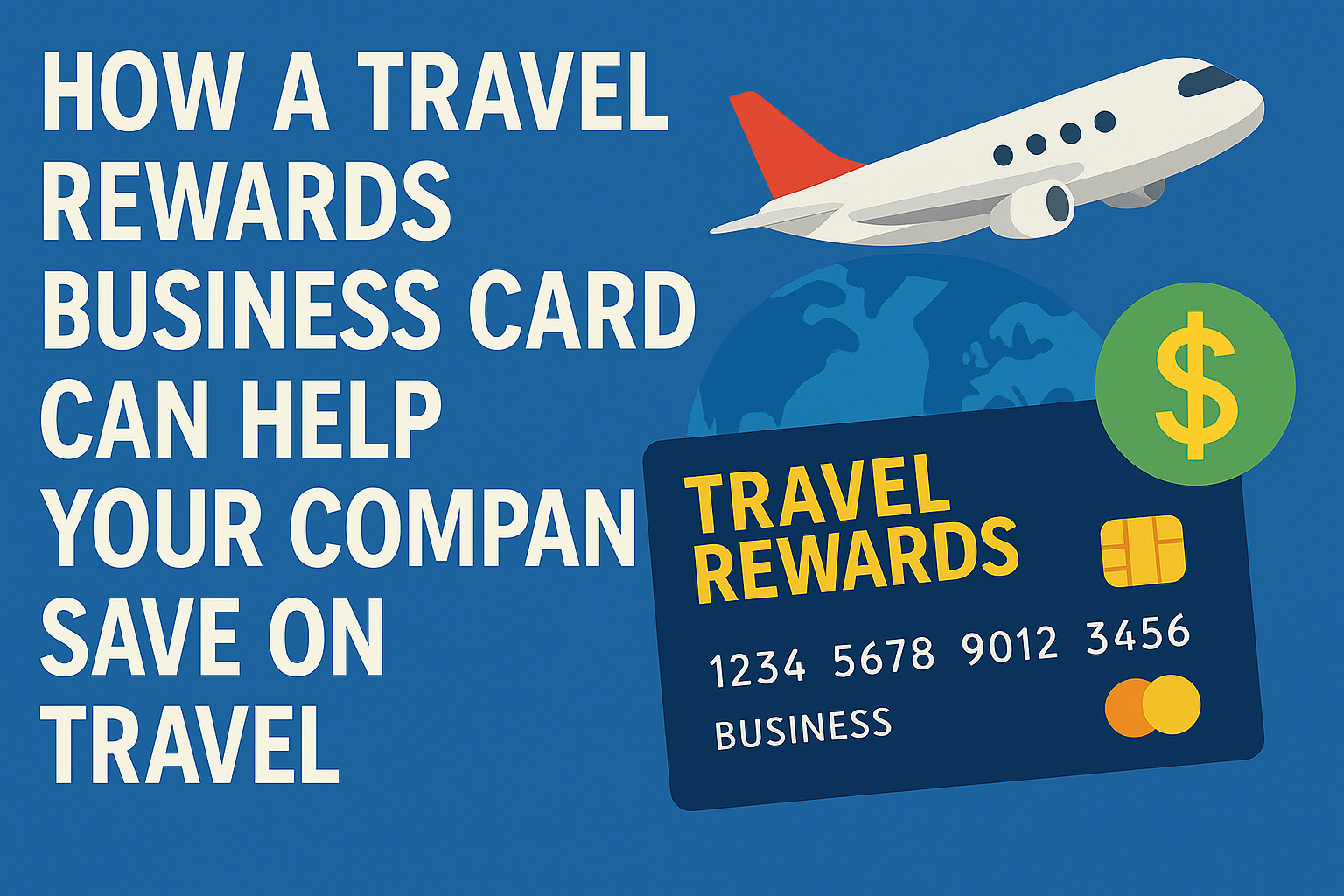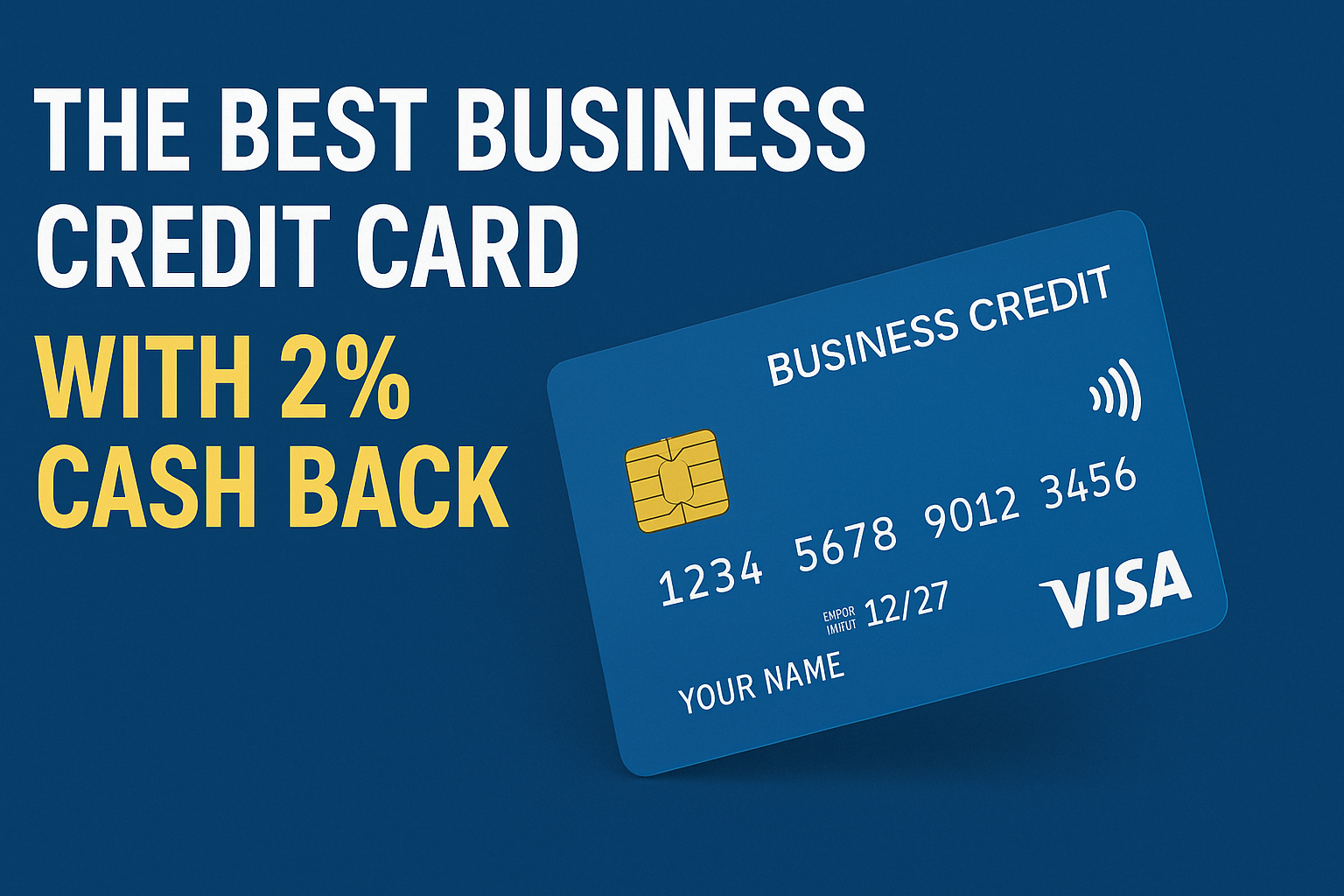How to Maximize Business Travel with a Travel Rewards Business Card

What Is a Travel Rewards Business Card? A travel rewards business card helps business owners earn points or miles on work-related spending. These cards are made for people who travel often for work. You can use them to pay for flights, hotels, meals, and more. Every dollar you spend earns you something back.
1. Why Use a Travel Rewards Business Card?
These cards help you save money on travel. You earn points every time you use them. Points can be used for future trips or upgrades. This makes it easier to manage travel costs for your business. They also offer extra perks. Some give you free checked bags or lounge access. Others include travel insurance or statement credits. These features add real value to frequent travelers.
Business cards keep personal and company spending separate. This makes accounting much easier. It also helps when filing taxes or tracking expenses. You can find cards that fit small businesses or large teams. Many let you add employee cards at no cost. That way, everyone in your team can earn rewards too.
2. Top Benefits of These Cards
You earn rewards on everyday spending. Most cards give 2x or 3x points on travel and office supplies. Some have rotating bonus categories like gas or dining. You get travel credits each year. These can cover airline fees or hotel stays. Just charge those items to your card and get some of the cost back. Airport lounge access is another big perk. Many premium cards come with Priority Pass or similar memberships. That means free food, drinks, and quiet spaces while you wait for flights.
Travel insurance is standard on most cards. This includes trip delay coverage, rental car insurance, and lost luggage protection. These benefits can save hundreds if something goes wrong. There are no foreign transaction fees. This is important if you travel outside the U.S. You can use your card anywhere without added costs. Employee cards are available. You can track spending and set limits for each user. This gives control without losing reward-earning power.
3. How to Choose the Right Card
Look at what you spend the most on. If you fly often, pick a card that gives high rewards on airfare. If you book hotels, choose one that partners with major hotel chains. Check how easy it is to redeem points. Some cards let you transfer points to airlines or hotels. Others only let you use their own booking portals. Pick the system that works best for you. Annual fees vary. Some cards charge $95 a year. Others go up to $695. The higher-end cards offer better perks. Make sure the value of those perks matches your travel habits.
Welcome bonuses are a big deal. Most cards offer 50,000 to 120,000 bonus points. But you must spend a certain amount within the first few months. Be sure you can meet the spending requirement. No foreign fees matter if you travel abroad. Always check this before applying. A 1–3% fee on every purchase adds up fast. Extra tools are nice to have. Look for expense reports, integrations with QuickBooks, and mobile apps. These make managing your card easier.
4. Best Travel Rewards Business Cards in 2025
Here are five top options right now:
Each card has different strengths. The Amex Business Platinum is best for heavy travelers. The Chase Ink Business Preferred suits small businesses. The Capital One Venture X offers great flexibility. Choose based on your needs.
Read More » How a Travel Rewards Business Card Can Help Your Company Save on Travel

5. Tips to Get the Most from Your Card
Use your card for all eligible expenses. Charge office supplies, software, and travel costs. This builds points quickly. Just pay off the balance every month. Watch for rotating bonus categories. Activate them each quarter to earn more. Gas stations, restaurants, and online ads often qualify. Combine with personal cards if they share the same point system. This lets you pool points for bigger redemptions. It works well with Chase and Amex.
Redeem smartly. Don’t waste points on gift cards or merchandise. Use them for travel where they offer the highest value. Track expiration dates. Some points expire after 12 or 24 months. Check your account regularly to avoid losing value. Keep an eye out for new sign-up offers. Sometimes you can reapply after a few years and get another bonus.
6. Common Mistakes to Avoid
Don’t carry a balance. Interest charges will eat up any rewards you earned. Always pay in full each month. Read the terms carefully. Know how points expire, which redemptions are allowed, and how transfers work. Don’t mix personal and business use. Keep things clean for tax season. Use a personal card for personal spending.
Avoid applying for too many cards at once. Too many inquiries hurt your credit score. Apply only when needed. Set limits on employee cards. Track usage to prevent misuse. Review monthly statements for any odd charges. Don’t redeem at low value. Some redemptions give just 0.5 cents per point. Aim for 1 cent or more per point.
Conclusion: Use a Travel Rewards Business Card Wisely
A travel rewards business card is a strong tool for anyone who travels for work. It saves money and offers real perks. With the right strategy, it pays for itself over time. Choose a card that fits your spending. Use it for daily business costs. Pay it off each month. Redeem points wisely. The goal is to cut costs and improve your travel experience. Whether you’re a solo worker or run a team, there’s a card for you. Start by comparing the top picks listed above. Then apply and begin earning rewards on every business expense.
Read More » What Is Online School and How Does It Work?
FAQs About Travel Rewards Business Cards
Q1: Can freelancers get these cards?
Yes. Most banks accept sole proprietors, freelancers, and consultants. You’ll need an EIN or provide your SSN.
Q2: Do these cards affect my credit score?
Yes. Applying pulls your credit report. Using the card responsibly builds credit. Missing payments hurts it.
Q3: Are there cards with no annual fee?
Yes. Cards like the Chase Ink Business Cash and Discover it Business have no annual fee. They still offer good rewards.
Q4: Can I upgrade from a personal card?
Not always. It’s usually better to apply for a business card directly. Some banks may offer upgrades, but it’s rare.
Q5: How do I redeem points?
Most cards let you redeem through their portal or transfer points to airlines/hotels. Check your issuer’s website for details.
Q6: Do all purchases earn points?
Yes. Most cards give base points on every purchase. Bonus categories give more points on specific types of spending.
Q7: What happens to points if I close the card?
Points may be lost. Always redeem or transfer them before closing the account. Some issuers let you keep points even after closure.




